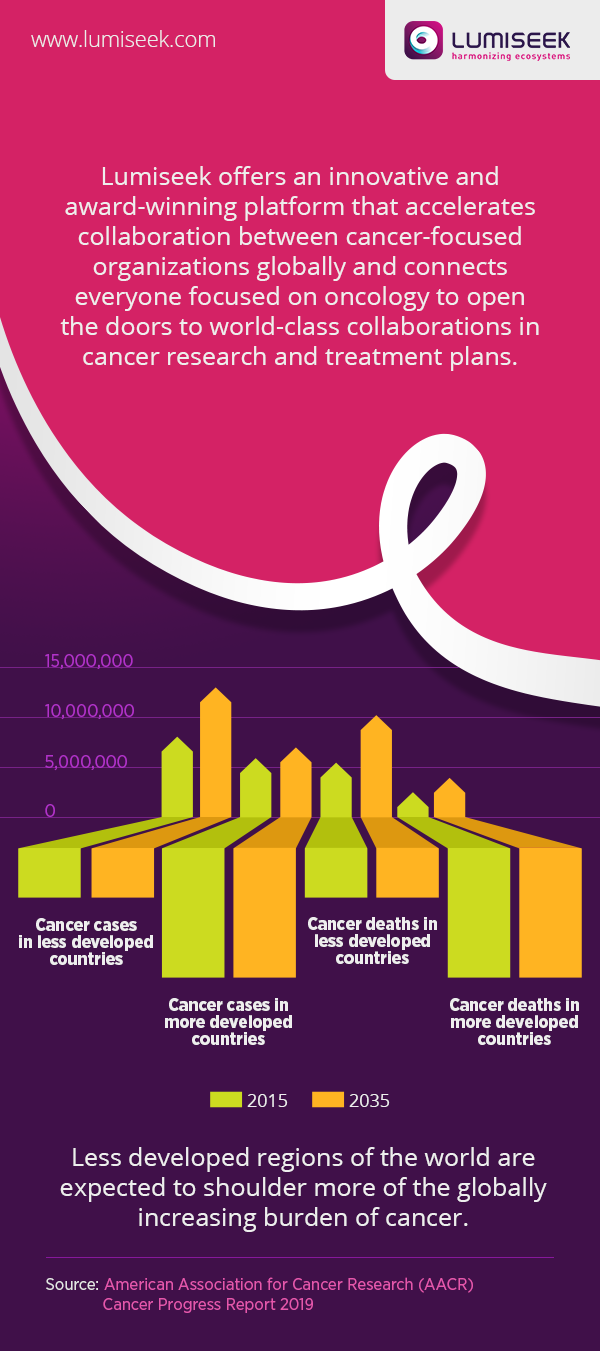About 16% of deaths around the world today are being caused by cancer. This percentage is only going to increase and become more significant over time, due to overall population growth. According to the 2018 GLOBOCAN database, most countries of the world are facing an increase in the absolute number of cases being diagnosed and requiring treatment and care. Globally, nearly half of all new cases and more than half of the cancer deaths worldwide in 2018 are estimated to occur in Asia (60% of the global population). Europe accounts for 23.4% of the global cancer cases and 20.3% of the cancer deaths but has only 9.0% of the global population. The Americas have 13.3% of the global population and account for 21.0% of incidence and 14.4% of mortality worldwide. In contrast to other world regions, the proportions of cancer deaths in Asia and in Africa (57.3% and 7.3%, respectively) are higher than the proportions of incident cases (48.4% and 5.8%, respectively). According to the IARC (International Agency for Research on Cancer), only one in five low- and middle-income countries have the necessary data to drive policy and reduce the burden and suffering caused by cancer and alleviate its impact on developing countries. While the burden of cancer is undeniably growing on all parts of the world, the less developed counties are taking a much higher burden than more developed countries (see image below).

- Search for relevant global expertise, information and resources
- Create personnel directories within and across organizations
- Manage a complex interplay of relationships between cross-disciplinary:
- Departments/divisions
- Other cancer focused organizations: Hospitals, start-ups, research organizations, biotech/pharma, regulatory agencies and allied professionals
- Streamline communication between all parties using our real-time monitoring and tiered role-based privacy solution.
- Access documents, information and third-party tools through a common dashboard.
